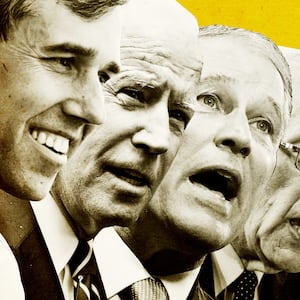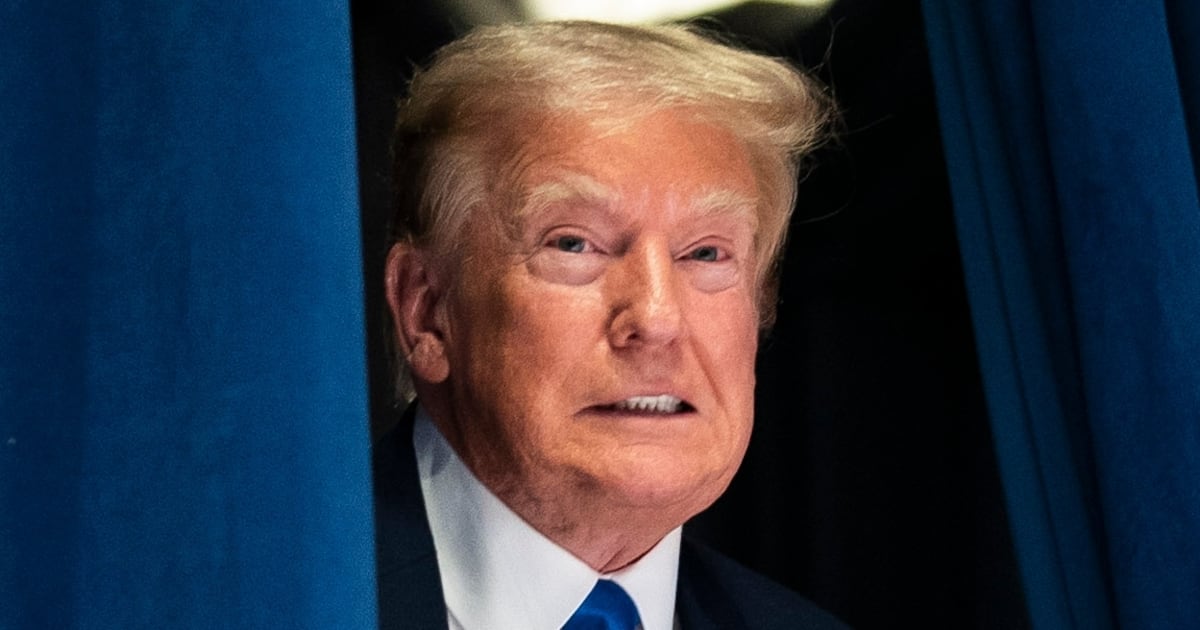NEWARK, New Jersey—His position in the polls is solidly middle of the pack. His fundraising is fine but not impressive. He hasn’t had a singular breakout viral moment despite his early use of and comfort with social media.
But Sen. Cory Booker’s (D-NJ) campaign and allies don’t view his first 72 days as a candidate for president of the United States as a disappointment. They’ve been happy to quietly toil and work on the less flashy parts of building a lasting campaign, even if its beneficiary is a man known for seeking and being in the spotlight.
They are betting that it’s too early for much of this to matter and that Booker’s workmanlike, focused approach in intimate town halls, his early state campaign infrastructure, and a retooled national tour will provide some momentum and will keep him competitive for a very long primary.
As Addisu Demissie, Booker’s campaign manager, put it on a strategy call with reporters last Thursday: “We’re not building this campaign to win a poll in April of 2019. We’re trying to win a primary in February of 2020.”
But the slow grind of winning local endorsements and building out staff is not the kind of story that pulls the center of the media’s gravity toward a candidate. And when Booker entered the race on Feb. 1 with the promise of an uplifting, unifying campaign, he was one of six who had formally entered or formed an exploratory committee. By Saturday, when the New Jersey Democrat launched his new “Justice for All Tour” on an unseasonably warm afternoon in Newark’s Military Park, across from a Whole Foods that he helped bring to the city as mayor, that number had ballooned to 19.
Introduced by a who’s who of important New Jersey Democrats including his fellow Sen. Bob Menendez (D-NJ), the current Newark mayor and former critic of Booker, Ras Baraka, and Gov. Phil Murphy, Booker delivered an urgent message about social and economic justice that reflected themes in Dr. Martin Luther King Jr.’s “Letter from Birmingham Jail.”
“We can’t wait when powerful forces are turning their prejudice into policy and rolling back the rights that generations of Americans fought for and heroes died for,” Booker said, on the same day that Dr. King began writing the famous letter in 1963. “We can’t wait when this administration is throwing children fleeing violence into cages, banning Muslims from entering the nation founded on religious liberty, and preventing brave transgender Americans from serving the country they love. And we can’t wait because many of our most serious challenges as a nation were with us long before Donald Trump entered the White House.”
The event, meant to have the feel of a block party complete with bubbles, face-painting, a marching band, and food trucks, steadily saw its start time creep back as a sparse crowd left patches of drying grass noticeably visible before the senator took the stage.
By the time Booker ended his remarks with Chance the Rapper’s “No Problem” blasting from the speakers, and spent nearly as much if not more time on a selfie line dabbing the beading sweat from his head as he greeted supporters, a campaign aide said over 4,100 people had turned out, citing the head of security for the event.
Booker will now head back to Iowa, then visit Georgia, California, Texas, Florida, and Wisconsin for the first time on this tour, where he is expected to hold more conversational events about signature policies like his “baby bonds” proposal, which would provide a savings account for American children in an effort to close the massive racial wealth gap.
It’s in these settings that his supporters think Booker thrives the best, particularly in early voting states like New Hampshire, where residents often decide late and want to see candidates face-to-face. In short, they think that not only can voters wait but that they will.
“The voters here, and I think in other places too, are not ready to make any final decisions,” Jim Demers, the New Hampshire co-chair of Barack Obama’s 2008 campaign, told The Daily Beast. “When I hear somebody say, ‘I’ve kind of winnowed this down to three or four people’ and everyone I talk to has Cory Booker in their three or four, that makes me feel comfortable because I think that’s kind of where the voters’ minds are right now.”
Demers, an early Booker supporter, cited the fact that he earned the support of New Hampshire state Sen. Jon Morgan, who backed the New Jersey Democrat after meeting with numerous other 2020 candidates. Booker and Sen. Elizabeth Warren (D-MA) have the most built-out operations in the Granite State, Demers said, and Booker is among the most frequent visitors. He contributed more money to the New Hampshire Democratic Party during the 2018 cycle than any other 2020 candidate, and the state party chairman, Ray Buckley, referred to him as a “best friend” to the state’s Democrats.
In South Carolina, another crucial early voting state where Booker has also spent a ton of his time and resources, he earned the first 2020 endorsement from a state lawmaker.
It’s the same story in Iowa, where Booker similarly hasn’t reached the upper echelon of polling but secured the first endorsement of the cycle from an Iowa state lawmaker. He has 16 staffers in the state and is going to add more than two dozen more in the next few weeks.
“I know the team that he’s put together and they are very organizationally focused, and so I would imagine they are as well organized as any other campaign on the ground right now,” Jeff Link, an Iowa-based Democratic strategist, told The Daily Beast.
Link said that since Booker wowed an Iowa crowd at last year’s Fall Gala event, he’s mostly had to work on the “nuts and bolts” of the campaign, as everyone who entered early has had to in the last few months. But Link is waiting on this year’s gala to get more of a sense of how everyone will stack up and carry momentum through the last few months of the year.
“In 2008, that was really when you could kind of feel that Obama was really in a position to beat Hillary Clinton,” Link said of the caucus that launched him to the Democratic nomination. “It was at that night.”
The other reason Booker might not be catching on yet nationally at the moment is media fixation on some of the newer faces in the race. Right now, media coverage is influencing polling and vice versa, experts argued, creating a feedback loop that is not necessarily predictive of future outcomes by the start of 2019.
“The problem with the polling and the media coverage is that they drive each other and then impact the fundraising ability,” Patrick Murray, the director of the Monmouth University Polling Institute, told The Daily Beast. “Because money is going to go towards the candidates that people think are going to do well.”
How voters determine viability in the most crowded primary in history is the main unanswered question in these early months, before candidates have gotten to face off in the first of a dozen debates this summer and before more voters start to really tune in. Even some in attendance at Booker’s Newark launch were asking themselves the same thing.
“I’m still thinking through a lot of options,” Kitty Hunter-Little, 58, from Union Township in New Jersey, told The Daily Beast. “I like Kamala Harris. I like Beto [O’Rourke]. A lot of them I’m not even aware of. They’re just jumping in there.”
A Clinton supporter in 2016, Hunter-Little said she’s quite concerned about health care and is on two types of medication, and is worried about how “ugly” the race against President Trump will turn.
As for Booker, he’s occupying a spot he hopes to be in with more voters across the country in the coming months: on the radar.
“I think he’s high on my list of people,” she said.







